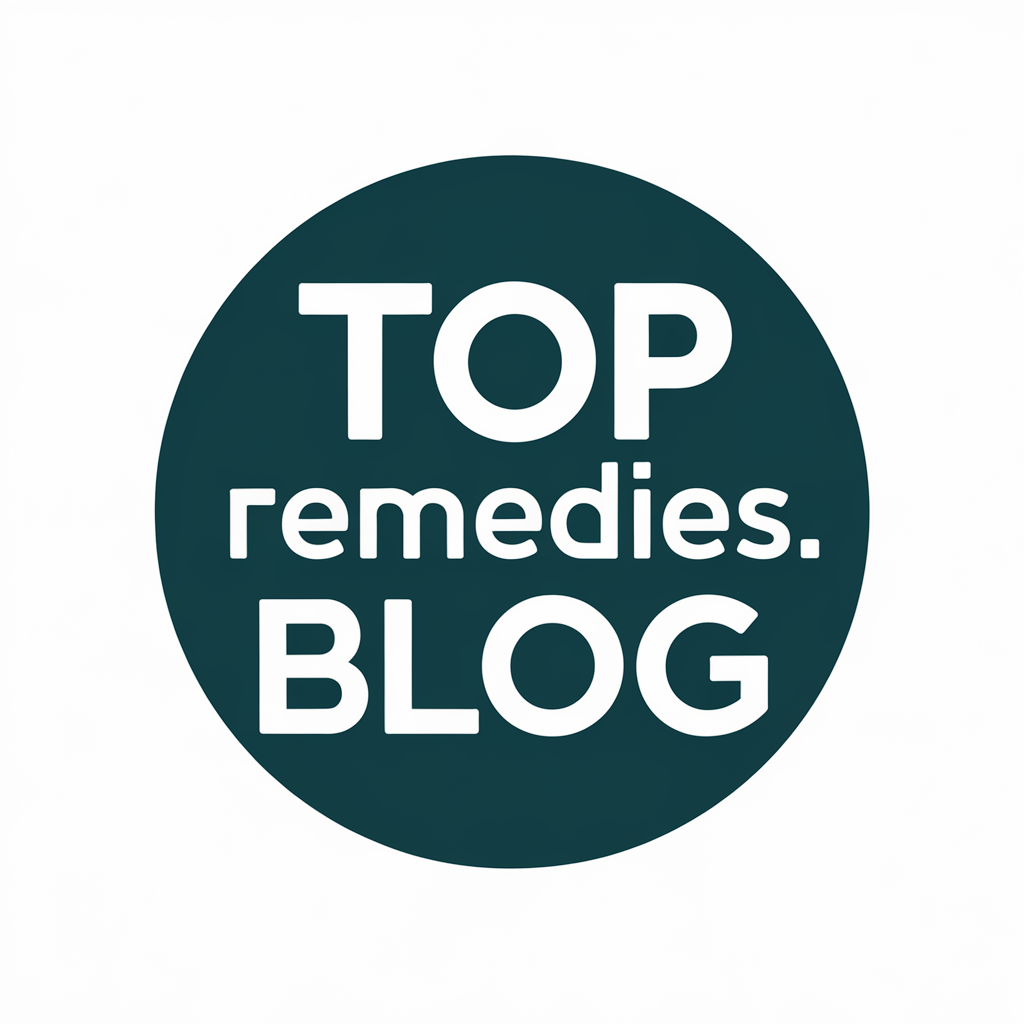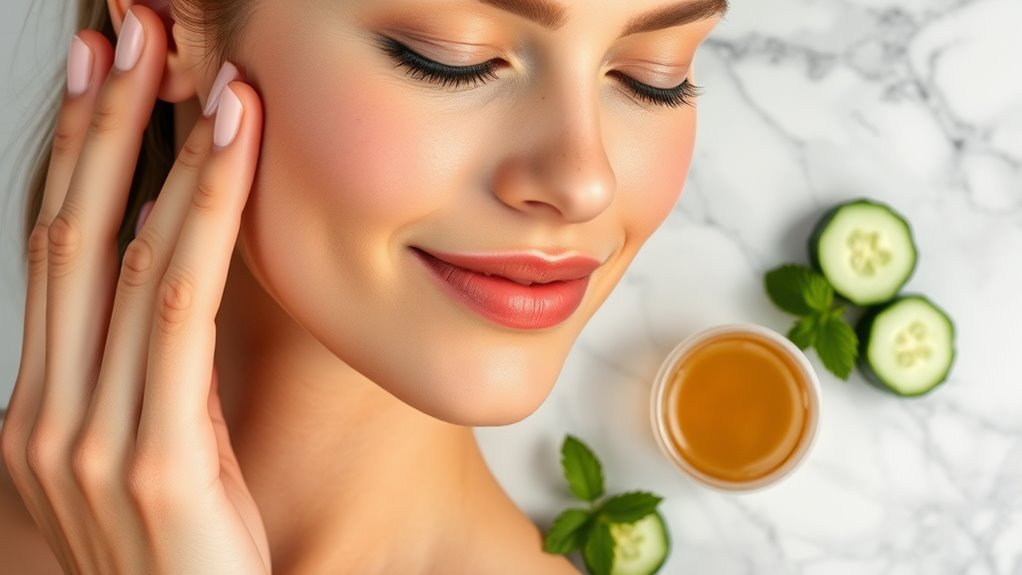The Ultimate Guide to Clearing Pimples – You Won’t Believe #3!
If you’re struggling with pimples, it’s crucial to understand what causes them, like hormonal imbalances and clogged pores. Traditional remedies, such as honey and tea tree oil, can soothe inflammation. Over-the-counter treatments like benzoyl peroxide and salicylic acid work wonders as well. Don’t forget about the impact of your diet—leafy greens and fatty fish can help too. Keep at it, and you’ll discover even more surprising solutions and tips for clearing your skin effectively!
Understanding Pimples: What Causes Them?
While you might think pimples are just a teenage nuisance, they actually stem from a mix of factors that can affect anyone. Hormonal fluctuations, excess oil production, and clogged pores often lead to breakouts.
Stress and diet also play significant roles; for instance, high-glycemic foods can trigger inflammation. Understanding these triggers is crucial for mastering your skin health.
It’s essential to recognize that the ultimate remedy for pimples isn’t just one solution but a combination of strategies tailored to your unique skin type. By addressing hormonal imbalances, maintaining a balanced diet, and managing stress effectively, you can significantly reduce the occurrence of pimples.
Knowledge is power, so equip yourself with the right information and take control of your skin’s destiny.
Traditional Remedies: Time-Tested Solutions
When it comes to tackling pimples, traditional remedies offer time-tested solutions that many have relied on for generations.
One popular method is applying honey, known for its antibacterial properties, to soothe inflammation and promote healing. You might also consider using tea tree oil, which can effectively reduce bacteria and inflammation.
Another effective remedy is a paste of crushed garlic, famed for its antimicrobial benefits. Don’t overlook the power of green tea—its antioxidants can help reduce redness and irritation.
Additionally, aloe vera’s soothing qualities make it a go-to for calming the skin. By experimenting with these remedies, you can discover what works best for you, harnessing nature’s wisdom in your quest for clear skin.
Over-the-Counter Treatments: What Works?
What over-the-counter treatments really work for clearing pimples? You’ve got options that can effectively tackle breakouts without needing a prescription.
Here’s what to look for in your skincare arsenal:
-
Benzoyl Peroxide: This ingredient kills acne-causing bacteria and helps reduce inflammation.
-
Salicylic Acid: It penetrates pores to exfoliate dead skin cells, preventing clogged pores.
-
Alpha Hydroxy Acids (AHAs): These acids gently exfoliate the skin’s surface, promoting cell turnover and improving skin texture.
Incorporating these treatments into your routine can help you achieve clearer skin.
Prescription Medications: When to Seek Help
If over-the-counter treatments aren’t cutting it, it might be time to consider prescription medications for your acne. Consulting a dermatologist can open up options tailored to your specific needs. Here’s a quick reference to help you identify when to seek help:
| Signs to Seek Help | Possible Medications |
|---|---|
| Persistent acne after 6 months | Retinoids |
| Severe breakouts | Antibiotics |
| Acne causing scarring | Hormonal treatments |
| Acne affecting self-esteem | Isotretinoin |
| Ongoing inflammation | Topical corticosteroids |
Taking the step to seek professional help can lead to effective solutions and a clearer complexion. Don’t hesitate—your skin deserves the best care!
Natural Remedies: Surprising Solutions
Have you ever wondered how simple ingredients from your kitchen could help tackle pesky pimples?
Natural remedies can be surprisingly effective, providing you with quick solutions without harsh chemicals. Here are a few to consider:
-
Honey: Its antibacterial properties help reduce inflammation and promote healing. Apply a small amount directly to the pimple and leave it on for 20 minutes before rinsing.
-
Tea Tree Oil: This powerful essential oil fights bacteria and reduces swelling. Dilute it with a carrier oil and apply it to blemishes for best results.
-
Aloe Vera: Known for its soothing properties, aloe can calm irritated skin and speed up healing. Apply fresh aloe gel directly to the affected area.
Give these natural remedies a try, and you might be amazed at the results!
Skincare Routine: Prevention Is Key
To prevent pimples from appearing, establishing a consistent skincare routine is essential. Start with a gentle cleanser to remove dirt and excess oil without stripping your skin’s natural moisture.
Follow up with a toner to balance your skin’s pH and tighten pores. Next, apply a lightweight moisturizer to keep your skin hydrated; even oily skin needs moisture.
Incorporate exfoliation two to three times a week to slough off dead skin cells, preventing clogged pores. Additionally, consider using products with salicylic acid or benzoyl peroxide to target acne proactively.
Don’t forget to apply sunscreen daily to protect your skin from UV damage, which can exacerbate breakouts. Consistency is key; stick to your routine, and your skin will thank you.
Dietary Changes: Foods That Fight Pimples
While a solid skincare routine is crucial for preventing pimples, the foods you eat can also play a significant role in maintaining clear skin.
Incorporating specific nutrients into your diet can help combat inflammation and excess oil production. Here are three foods you should consider adding to your meals:
-
Leafy Greens: Packed with vitamins and antioxidants, they help detoxify your skin and reduce inflammation.
-
Fatty Fish: Rich in omega-3 fatty acids, they can lower skin inflammation and boost hydration.
-
Berries: High in antioxidants, they protect your skin from damage and promote healing.
Lifestyle Habits: Stress and Sleep’s Impact
When you’re juggling a busy life, it’s easy to overlook how stress and lack of sleep can affect your skin.
Stress triggers hormone imbalances, leading to increased oil production and breakouts. Similarly, insufficient sleep disrupts your body’s natural repair processes, which can exacerbate acne.
To master your skin’s health, prioritize stress management techniques like mindfulness and regular exercise. These practices not only reduce stress but also improve your overall well-being.
Aim for 7-9 hours of quality sleep each night, creating a calming bedtime routine to enhance your skin’s recovery.
The Power of Consistency: Sticking to Your Plan
Consistency is key if you want to see real improvements in your skin. Sticking to your skincare plan may feel challenging, but it’s essential for achieving mastery over breakouts.
Embrace your routine and make it a part of your daily life. Here are three crucial steps to ensure you stay on track:
- Follow your regimen: Use products as directed, every day, without skipping.
- Track your progress: Keep a journal of changes to identify what works best for you.
- Adjust as needed: If something’s not working, don’t hesitate to tweak your routine or consult a professional.
Frequently Asked Questions
Can Hormonal Changes Affect Pimple Outbreaks?
Yes, hormonal changes can definitely affect pimple outbreaks. When your hormones fluctuate, especially during puberty, menstruation, or stress, your skin’s oil production can increase, leading to clogged pores and breakouts. Stay mindful of these changes.
Are Certain Makeup Products Safe for Acne-Prone Skin?
Certain makeup products can be safe for acne-prone skin, but you should look for non-comedogenic labels. Ingredients like salicylic acid or oil-free formulas can help, so choose wisely to avoid aggravation.
How Often Should I Change My Pillowcase to Prevent Pimples?
You should change your pillowcase at least once a week to prevent pimples. Regularly washing it helps eliminate bacteria and oil buildup, reducing the chances of breakouts and promoting healthier skin overall.
Do Stress Relief Techniques Actually Reduce Acne?
Yes, stress relief techniques can reduce acne by lowering cortisol levels, which often trigger breakouts. Incorporating mindfulness, exercise, or meditation into your routine can help you manage stress and improve your skin’s overall health.
Is It Okay to Pop Pimples, and What Are the Risks?
Popping pimples can seem tempting, but it can lead to infection, scarring, and prolonged healing. Instead, focus on proper skincare and treatment options. You’ll achieve clearer skin without the risks associated with popping.

